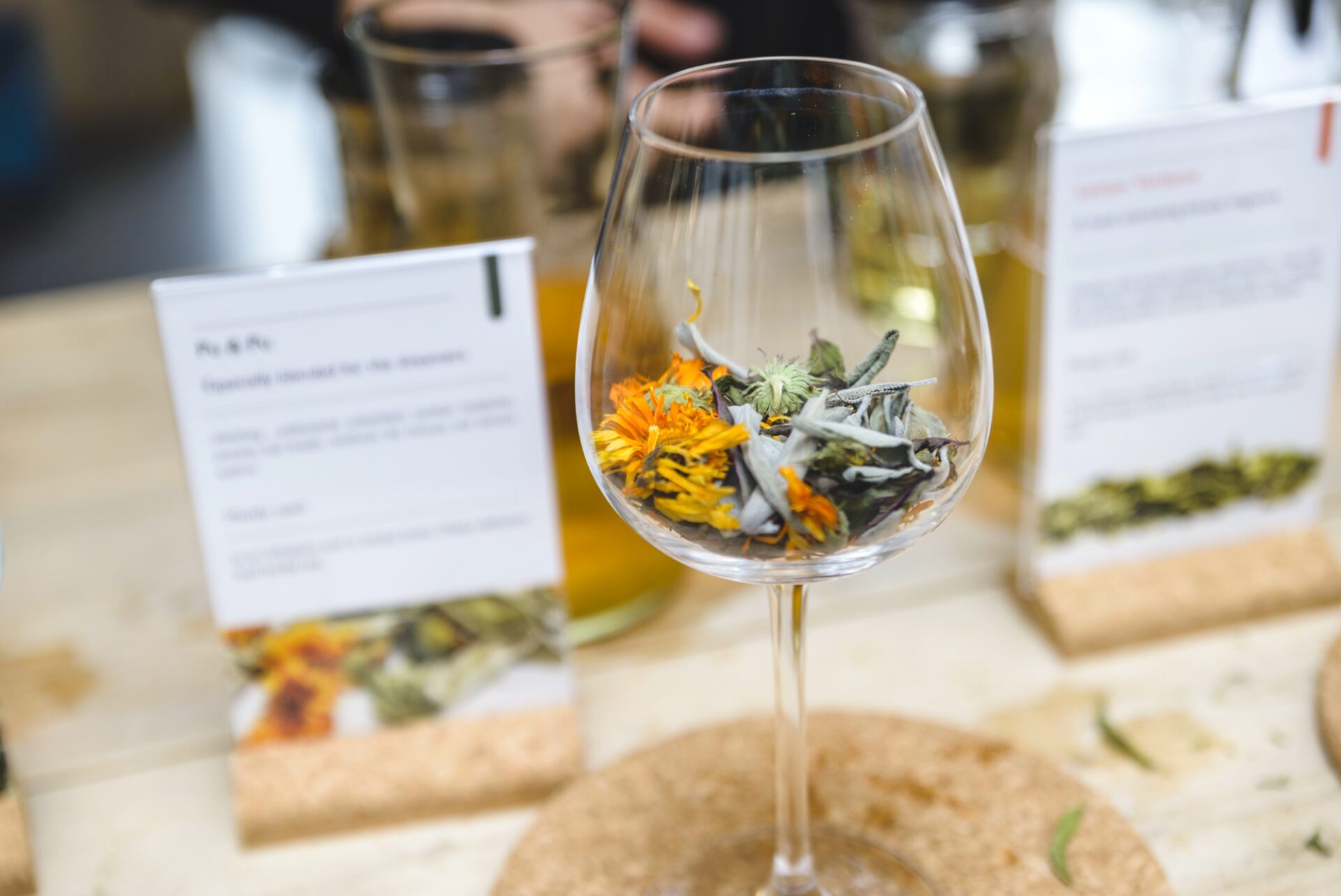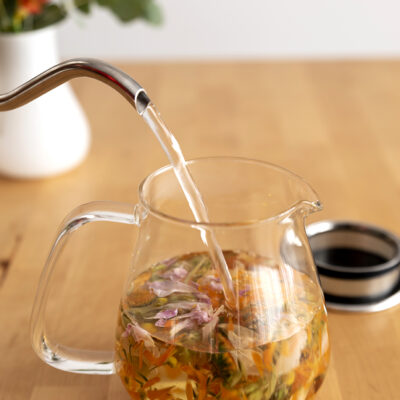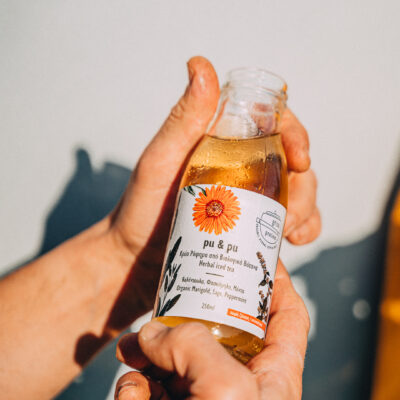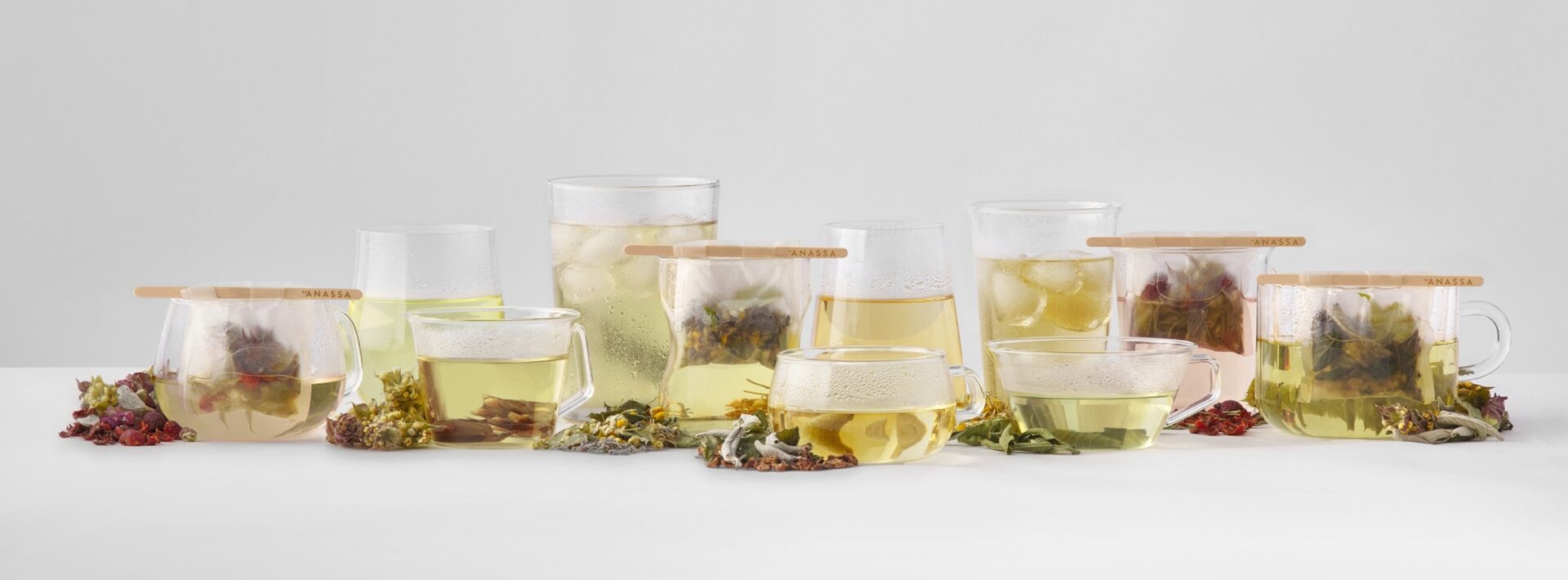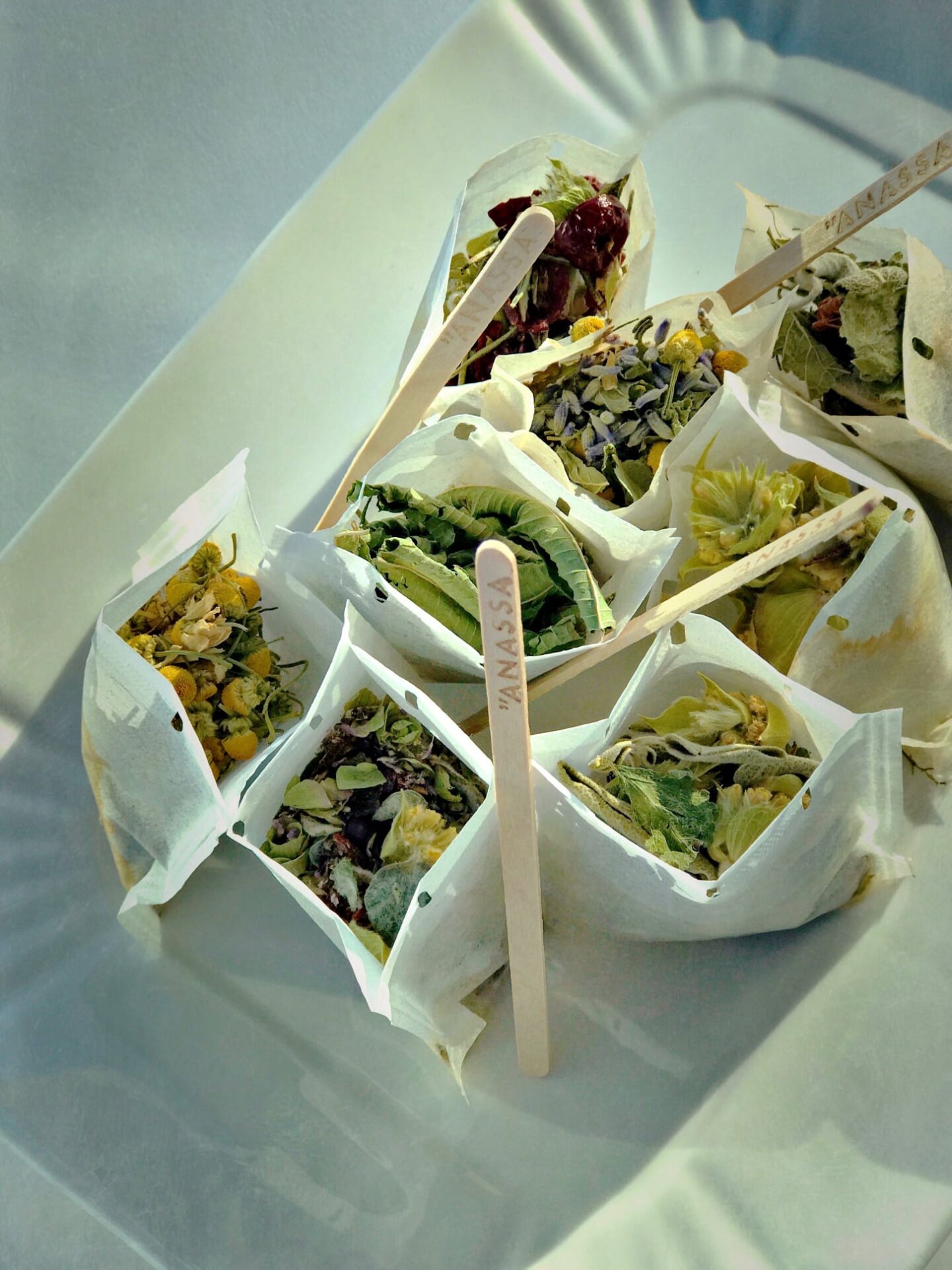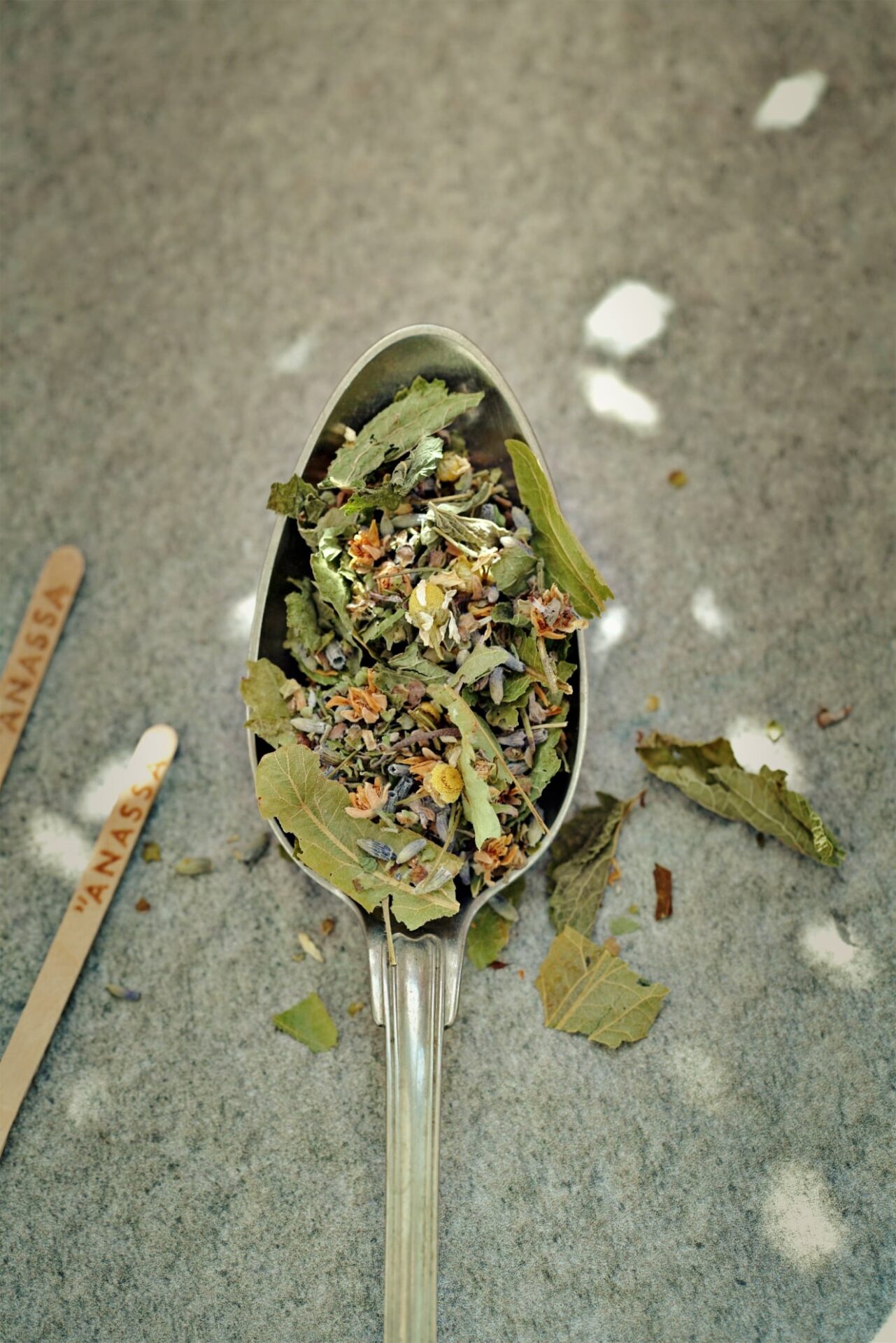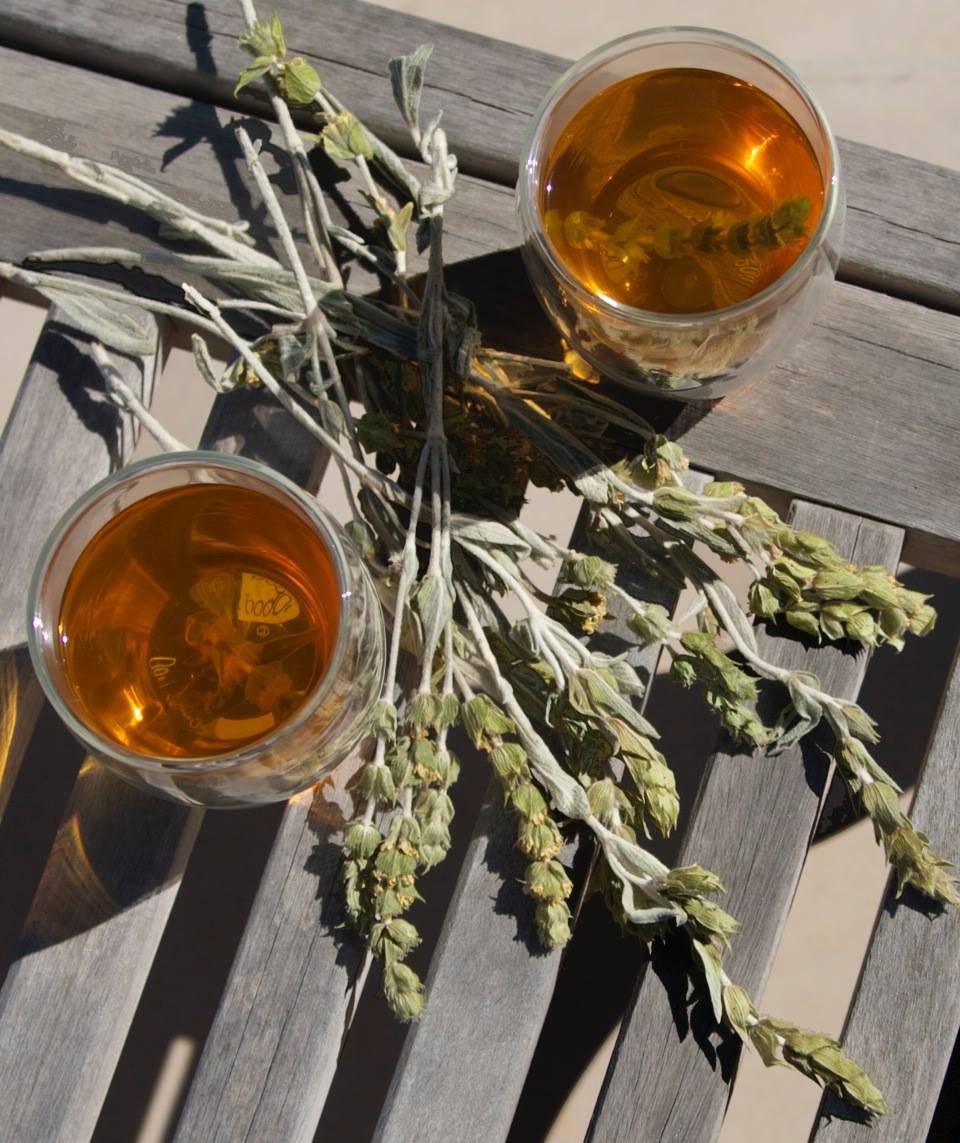Grizo & Prasino is a family, all-things-tea-related business run by husband and wife Kostas and Aggeliki, from their botanical farm in Thrace. The seed for this idea was planted almost a decade ago and the couple took its first steps towards making it happen right after their wedding day! We recently had a chat with the duo to discover their story.
Tell me more about yourself and your company Grizo & Prasino!
In 2012, Kostas and I got married and we spent the money that our family and friends gave us for the wedding to buy the equipment for our first business (similar to Grizo & Prasino) called ‘Drogi Biological Herbs’.
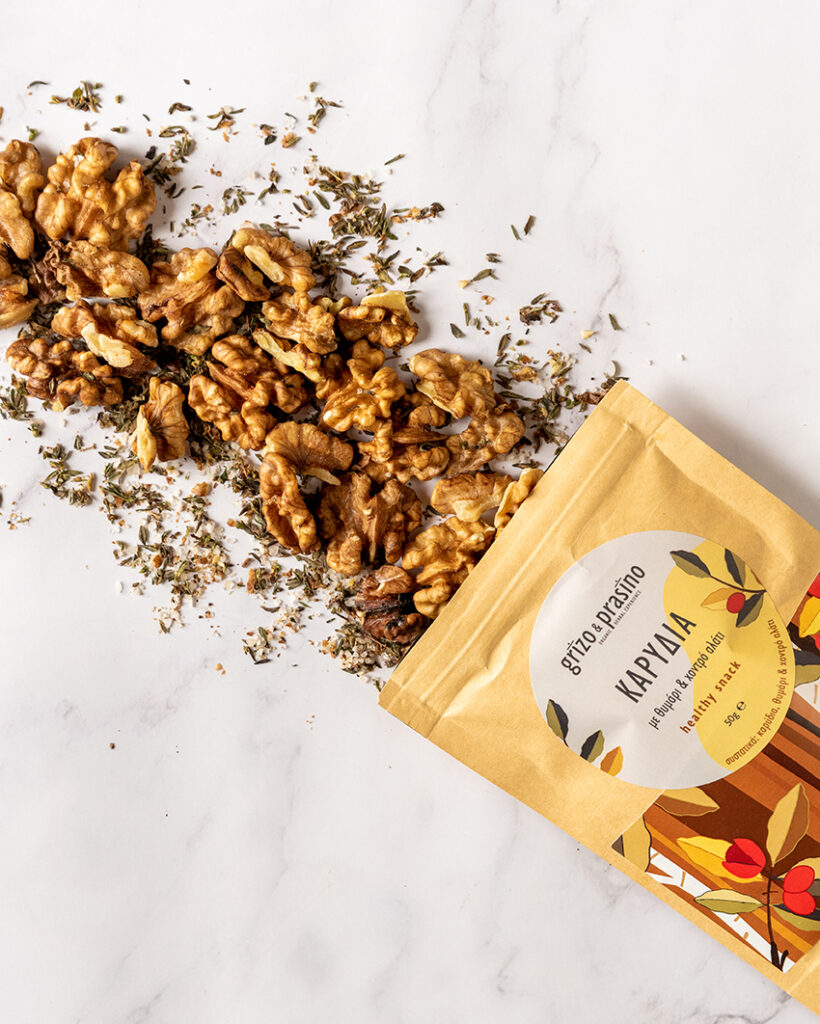
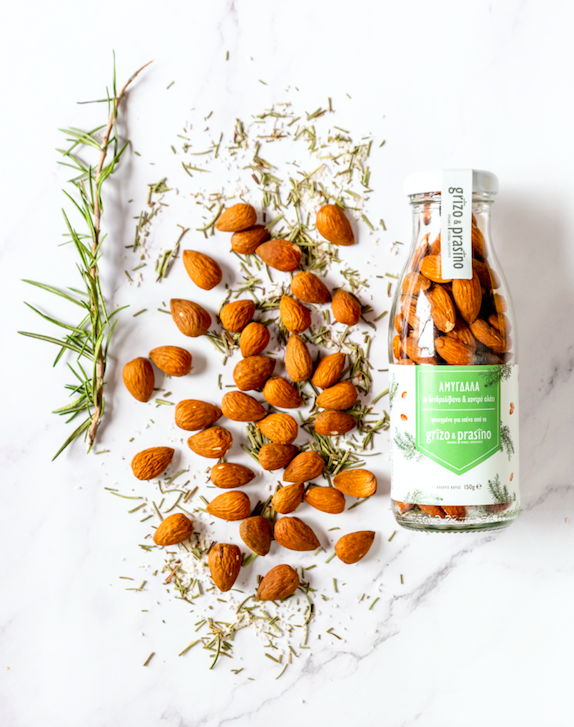
As an agriculture engineer, Kostas had a personal interest in herbs and aromatic plants since 2008- I have vivid memories of his enthusiasm each time he would taste a new herb. I also had a bee in my bonnet for their medicinal properties and read every book under the sun about them. At the same time, we run our separate businesses, I, as a lawyer and Kostas, as an Organic Farming consultant. It was these jobs that would fuel the bank and allow us to make our hobby happen and turn it into a business. In 2016, things changed with the arrival of our baby. Our time was limited so we decided to turn into business coaching to get more information about running a business and how this hobby of ours could potentially turn into our full-time income source.
In 2017, after a serious health issue, I decided to leave my career in law and so Grizo & Prasino was born at the end of the same year. Since then many things have changed – the way we work, the time we dedicated to the farm, and even our original goals! We grow as our business grows and we learn from our mistakes. Thankfully we make plenty of them!
How did it feel when you had your first sale?
I cannot remember much about our first sale however what I do remember is that by the time our website went live in December 2017, we were exhausted! We had spent so much time building our branding strategy, setting up the website and clearly communicating who we are, our vision and values; that when we started receiving positive feedback from our friends and loved ones we felt pride, happiness and an impatience to see where this would lead us.
Where in Rodopi do you go foraging?
Wild foraging at a commercial level could be harmful to nature so we have our own farm where we cultivate the herbs we use. We steer away from practices that would potentially damage the environment and our customers. Take as an example the case of Malotira in Crete, the famous Cretan tea that is nearly extinct due to over-foraging. Then, there is always the matter of quality consistency. With wild foraging you cannot control certain parameters such as the rainfall and the conditions of the top and sub-soil, that affect the taste, flavour and therapeutical properties of the herbs.
What do you love more about this job?
We both followed our dream, quit our day jobs and turned our hobby into our business, working every day on something that we both love. It wasn’t an easy task but our love for botanology and herbs gives us the strength to keep going. There is an innumerable number of products that could be based on herbs and I am not even sure if one life is enough to learn all about them and apply them to our products. Grizo & Prasino allows us to be creative, to constantly think of new ideas and make them happen. It is also a job that brings us closer to nature as we spend plenty of time on the farm. But beyond everything else, it is a job that allows us to produce commodities that helps others and makes their life better. We don’t just sell stuff, we believe in their magic, too!
How has your life changed since Grizo and Prasino?
I am not going to bore you with the details but, as I mentioned, I used to be a lawyer so you could say that life has changed massively ever since. I no longer chase deadlines nor do I have to support cases I am not agreeing with. I am not visiting the farm as frequently as Kostas does but when I do it does me good and I it lifts my spirit. As for Kostas, even though he is an agriculture engineer and working as a consultant for all those years, he too found himself getting out of the office more than he used to. If you knew Kostas in real life, you would see that the outdoors suit him more than the office. He loves agroecology and trying new practices for our farm. Some of those practices look outdated but they are far from it! He is always on the hunt for new practices and techniques that are applied on other farms in Greece and abroad. It is a very creative process and come to think of it, creating a farm is like painting on a larger scale, isn’t it?
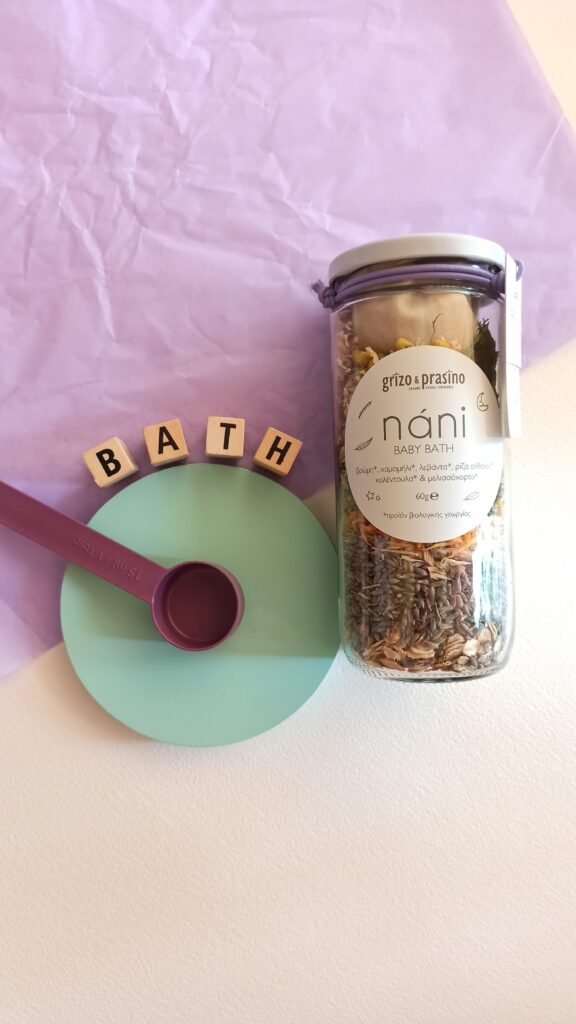
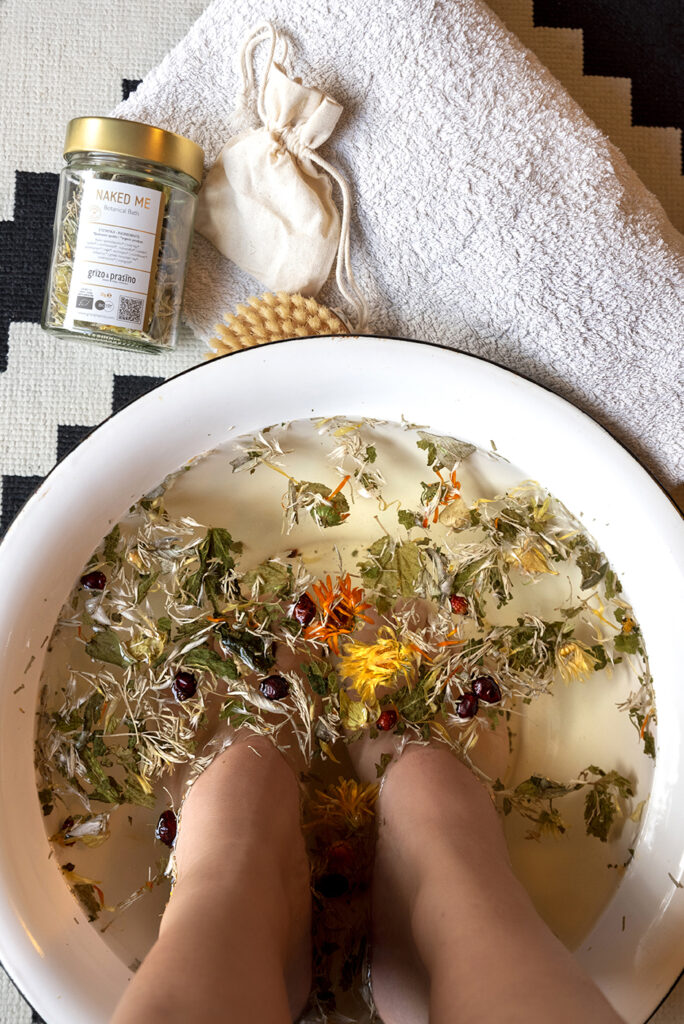
What are your top places around Komotini to reconnect with nature?
We love the little village of Pandroso and the beach of Molyvoti (also known as Kursumlu). Those are the first places that come to mind when we need to get some fresh air and enjoy the great outdoors. Rodopi is full of interesting places to visit and it is truly amazing how there are still so many pristine and unspoiled spots to explore.
Last but not least, what are your favourite Grizo and Prasino tea flavours and
which flavour one must definitely try?
My preferences vary with the change of seasons. Around this time of the year, I like to drink the “exhale” (sage, pergamot and juniper root), but before that, I frantically drank “mantarili” (mandarin, honeysuckle and chamomile). However, the flavour that I love and keep going back to again and again is the “xana & xana” (rosemary, althaea and louiza) with no sugar, please. Kostas’s favourite is the “orange tzitzimenta” (mint, ginger and orange) and he believes it’s the best of our creations! I guess he is a mint kind of guy as he also likes “pu & pu” (mint, sage and calendula) no sugar for him either.
Images by Anna Paraskevidou- art traces ©

